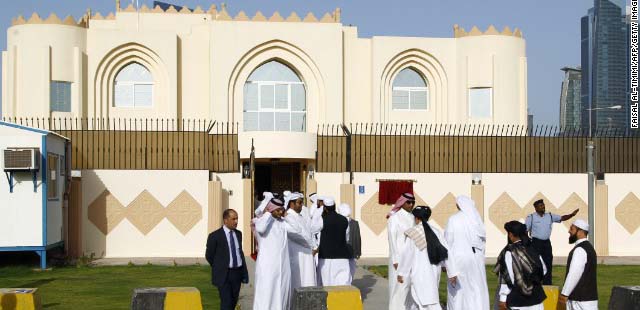KABUL - Afghanistan's High Peace Council (HPC) members on Sunday called on the international community to play an observer role in the peace talks as they believe that without this the talks between Afghanistan and the Taliban will not be successful.
Qazi Mohammad Amin Waqad, a member of the HPC – the only authorized group to lead peace talks – said that "elements" responsible for bringing the Taliban to the talks tables were the same that encourage them to carry out attacks against the country. He, however, did not elaborate on who these "elements" are.
"If the United Nations or its Security Council approves an agreement that peace talks between the two groups must be led in their presence in neighboring countries like Pakistan or China, the Taliban will also show flexibility and the international community can then monitor the talks which will be useful for us," Waqad told TOLOnews.
"But the current talks are very limited because there are only members of the Afghan government and Taliban involved," he continued.
Furthermore, he asserted that the Taliban had no authority and were unable to make decisive decisions.
"If they [Taliban] had any authority and decisiveness, the peace talks could prove successful," said Waqad, who was the former leader of Hizb-e-Islami Party led by Gulbadin Hekmatyar. "If one day they are invited to talks and the other day to bombing, this will never work."
Analysts, meanwhile, stated they were not optimistic about the results of peace talks after the Taliban's late supreme leader Mullah Mohammad Omar was confirmed dead, which they said, has splintered the Taliban.
After the Afghan officials and the Taliban confirmed late last month that Mullah Omar had died in 2013 in Karachi city in Pakistan, Mullah Akhtar Mohammad Mansour was apparently appointed as the successor of the late reclusive leader.
Mansour's appointment, has however reportedly been opposed by some key members of the Taliban's Quetta Shura [Council], which in turn is said to have caused problems in the way of peace talks.
"Now if one [splinter] group comes to make peace with the Afghan government just because it disagrees with Mansour's appointment, it does not solve the problem because the remaining [splinter] groups will be left behind and they will continue fighting the government," a former Taliban member Abdul Salam Rocketi said, noting that peace was not possible under the current circumstances.
The Afghan Presidential Palace, however, insists that it will make peace only with those who believe in peace, not with those who shed the blood of innocent Afghans. (Tolonews)

